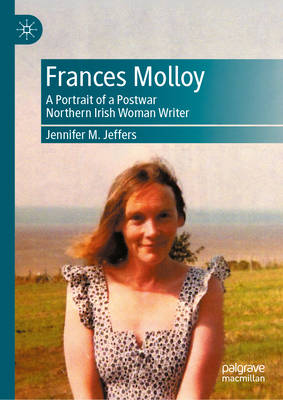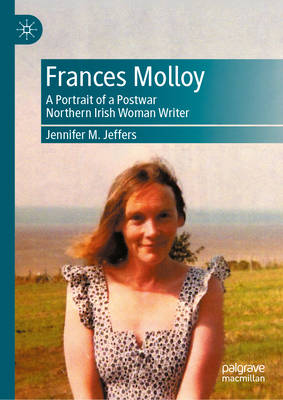
- Afhalen na 1 uur in een winkel met voorraad
- Gratis thuislevering in België vanaf € 30
- Ruim aanbod met 7 miljoen producten
- Afhalen na 1 uur in een winkel met voorraad
- Gratis thuislevering in België vanaf € 30
- Ruim aanbod met 7 miljoen producten
Zoeken
Frances Molloy
A Portrait of a Postwar Northern Irish Woman Writer
Jennifer M Jeffers
Hardcover | Engels
€ 117,95
+ 235 punten
Omschrijving
Frances Molloy: The Portrait of a Postwar Northern Irish Woman Writer is the story of Ann McGill Brady, the woman who wrote herself into the history of the Irish novel as Frances Molloy. It is also the story of a poor, uneducated, Catholic female in Northern Ireland in the 1960s; she had few choices and they were the traditional ones: marriage or work a dead-end job. For young Molloy, marriage was out the question because she did not want to replicate her own mother's life. Molloy believed that God did have a higher plan for her life, and she believed that she would better serve the world as a nun than as a seamstress in a pajama factory. Frances Molloy gives a voice to the poverty, prejudice, and violence the Catholic community endured in Northern Ireland under the Stormont Government in the post-World War II era. While identity is always at the forefront of society in Northern Ireland, there is little record of the Catholic female, bound by tradition and poverty, in the North. A group without a history is a group without an identity--no one has yet written a history of the poor Northern Irish Catholic female in the latter half of the twentieth century. Frances Molloy was a Catholic woman in a sectarian state, and her story includes discrimination, segregation, and unjust incarceration in Northern Ireland in the latter half of the twentieth century.
Specificaties
Betrokkenen
- Auteur(s):
- Uitgeverij:
Inhoud
- Aantal bladzijden:
- 314
- Taal:
- Engels
Eigenschappen
- Productcode (EAN):
- 9783031995200
- Verschijningsdatum:
- 2/10/2025
- Uitvoering:
- Hardcover
- Formaat:
- Genaaid
- Afmetingen:
- 147 mm x 201 mm
- Gewicht:
- 544 g

Alleen bij Standaard Boekhandel
+ 235 punten op je klantenkaart van Standaard Boekhandel
Beoordelingen
We publiceren alleen reviews die voldoen aan de voorwaarden voor reviews. Bekijk onze voorwaarden voor reviews.







